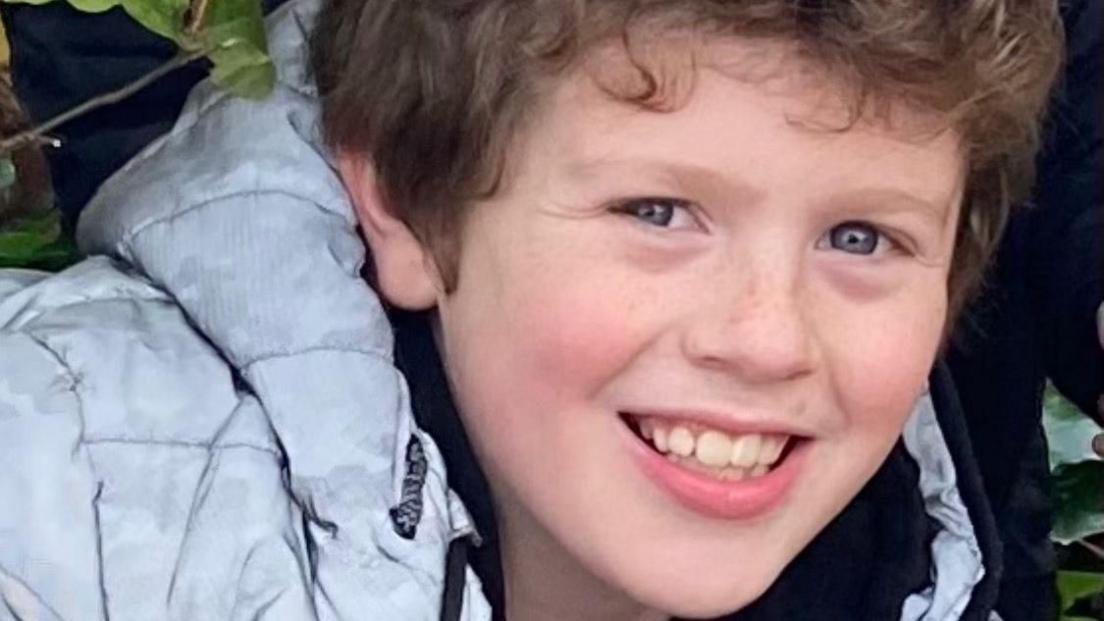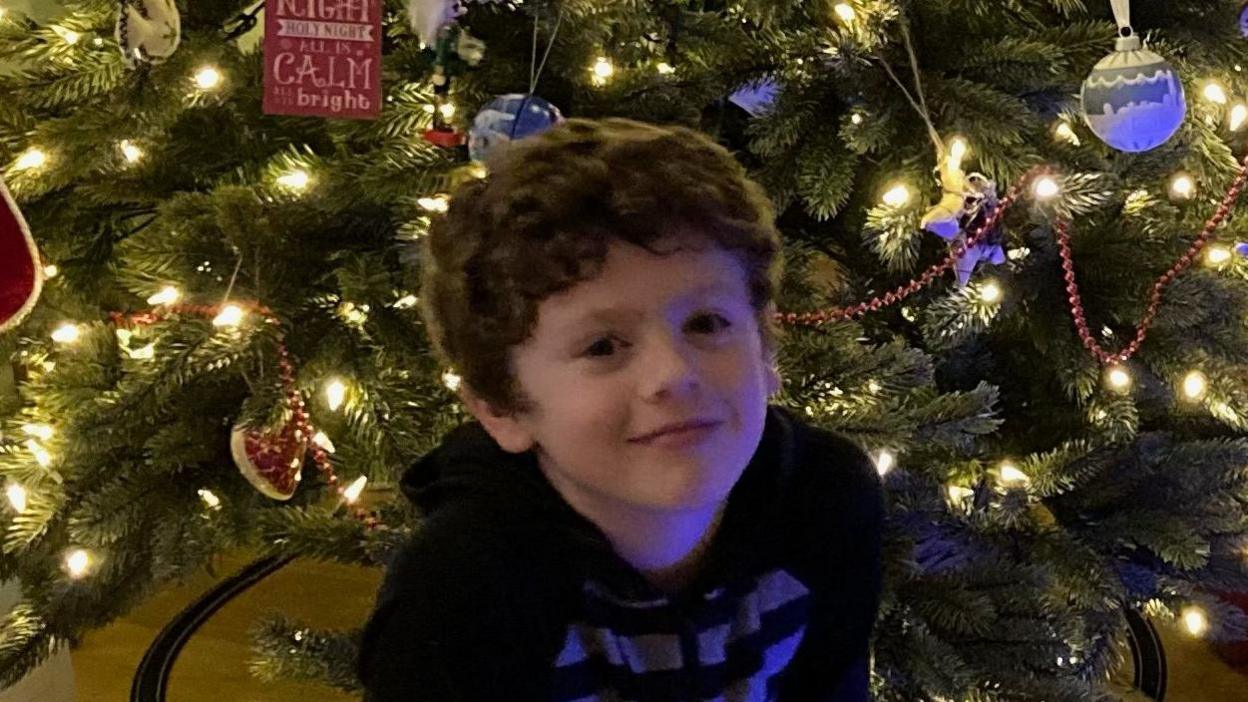Boy's sepsis death 'contributed to by neglect'

Dylan Cope's GP had referred him to hospital with suspected appendicitis, but doctors and nurses discharged him with flu after missing the note
- Published
A nine-year-old boy who died from sepsis days after being sent home from hospital with a leaflet on the flu was “erroneously discharged”, a coroner has concluded.
Dylan Cope from Newport went to A&E at the Grange Hospital in Cwmbran, Torfaen, on 6 December 2022 with a GP note saying "check for appendicitis" but this was not read.
His father has told the BBC he believes it a was a "missed opportunity" to save Dylan.
A coroner in Newport found the boy's death “would have been avoided if he had not been erroneously discharged”, and said what happened "amounts to a gross failure of basic care”.
List error saw people wait five years for surgery
- Published25 January 2024
Health board apologises after second mortuary mix-up
- Published9 March 2024
Strictly's Amy tells of life-threatening sepsis
- Published28 August 2023
Aneurin Bevan health board admitted the death "was as a result of an organisational system failure" and apologised.
The senior coroner for Gwent, Caroline Saunders, also found his death “was contributed to by neglect”.
The coroner found Dylan “was suffering from appendicitis“ when he first presented at hospital.
But she said the failure by the nurse practitioner to read Dylan’s GP notes was “below an acceptable standard of care”.
She urged Aneurin Bevan health board to “review the culture” around clinicians reading GP notes.
The inquest heard from the senior doctor on shift on the night of Dylan's visit, who said GP referrals were not being printed off and put into patients' notes because the department was “operating well over capacity”.
Emergency doctors and nurses therefore did not know that Dylan's GP had written “query appendicitis”, and sent him home with a coughs and colds advice sheet.
Dylan was readmitted to hospital on 10 December, and died on 14 December from septic shock, with multi-organ disfunction caused by a perforated appendix.

The court heard how Dylan Cope’s father should have been directed to a 999 call handler, but was not due to a mistake
Dylan’s parents said they “remain deeply concerned” about whether the hospital and health board had learned from this.
In a statement on the steps of the court they said: “The system is broken and urgently needs change.
“Dylan was our youngest son, a little boy with his whole life ahead of him”.
Dylan’s father, Laurence Cope, said multiple chances to save his son's life were not taken.
“Every one of those could have been a point where that might have saved his life, a missed opportunity," he said.
Dylan’s mother Corinne Cope said: “The only person who seemed to get it spot on was the GP, and thereafter it seemed like everyone let him down.
"How is that possible - there were so many failures, I think that is what is so alarming."
Dylan was described by his family as a “unique character - feisty and sensitive, and very loving”.
Breakdown in communication
The inquest also heard Dylan waited an hour longer than he should have to be triaged at the hospital and was eventually seen by a nurse practitioner who said it was not unusual to see patients without their GP notes.
A consultant paediatrician at Aneurin Bevan health board, Dr Nakul Gupta, said clinicians should be reading GP letters.
Ms Saunders said the nurse practitioner failed to document an adequate history of how and where Dylan's pain had started.
She said it was an “inadequate” examination.
The coroner found there was a “breakdown in communication”, and that is why Dylan did not receive a senior review.
The coroner said that if Dylan had received a senior review, he would have been kept in hospital, had a blood test taken and would have received a review by a surgical team.
She said if had he stayed in hospital “the diagnosis would have become clear”.
“On balance his death on the 14th would have been avoided," she said.
Failure of basic care
The coroner said what happened "amounts to a gross failure of basic care”.
“Dylan’s death was contributed to by neglect," she said, adding he was “inappropriately discharged home” when his condition “warranted further observation and assessment.
“Dylan’s death would have been avoided if he had not been erroneously discharged," she said.
The coroner did not feel the need to enact a regulation 28 report as she has been assured by the steps taken by the health board.
Aneurin Bevan health board said it "takes full responsibility for what happened to Dylan".
"We are deeply sorry and remain fully committed to supporting the family in any way we can," it added.
"Dylan’s tragic death was as a result of an organisational system failure that occurred in a department whilst under extreme pressure with twice the number of patients normally attending and was not attributable to any individual member of staff.
"We are working with Dylan’s parents to further raise awareness of the signs and symptoms of sepsis."